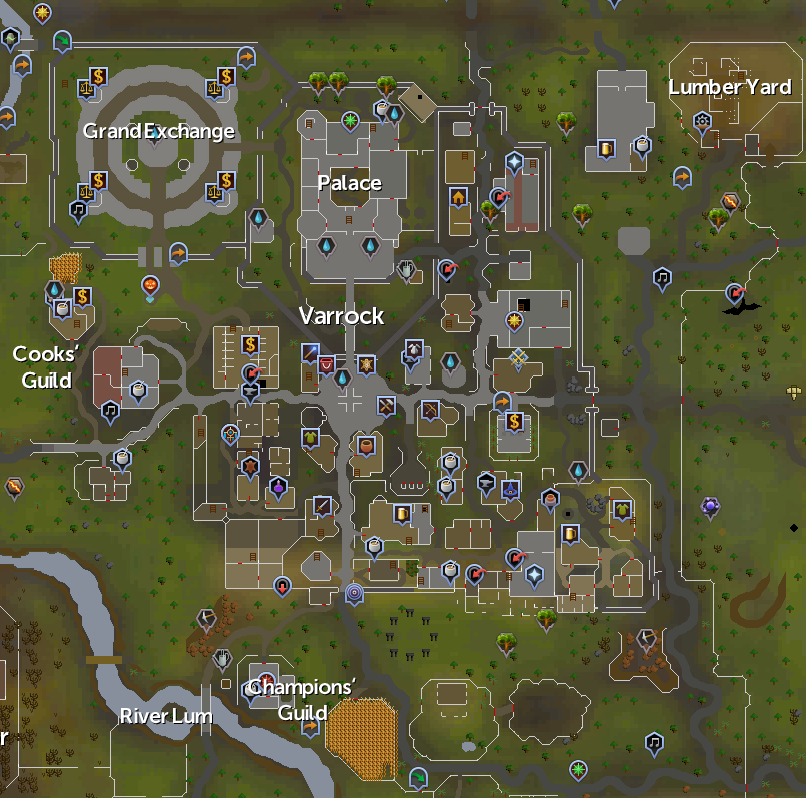

These hill giants also rarely drop giant keys, which can be later used to fight the hill giant boss, Obor. Their varied drop table of coins, runes, gems, big bones, and other trinkets can amount to 55,000gp per hour. Hill giants are powerful enough to necessitate that mid-game warriors bring competent stats and gear to the Edgeville Dungeon, namely 40 attack and 40 defense to wield rune weaponry and wear rune armor, respectively. Killing hill giants Screenshot by Gamepur These methods will often achieve higher experience rates per hour, are less click-intensive, and lead themselves toward more profitable ventures. These money-making methods assume that players have moderately leveled a few skills and have earned more effective gear in the process. Related: Old School RuneScape point-and-clicks its way onto Steam Advanced players: Better methods for breadwinning Additionally, new players working their way to 50 firemaking is also advised, as they can later participate in the very profitable Wintertodt mini-game when they reach membership. However, it is recommended that players cut their own logs, as the woodcutting experience earned can move the player toward chopping more profitable trees. While some may treat this activity as garbage collection, members training their herblore will pay handsomely to use ashes as a potion ingredient.Īn efficient hour of burning logs will generate around 60,000gp, though spending time cutting down logs will minorly cut into these earnings. Players disinterested with early-game combat can instead chop trees and set their logs on fire, collecting the ashes created in the process. Burning logs for ashes Screenshot by Gamepur
#Runescape classic grand exchange free#
As the cowhide is far more marketable, players are free to bury cow bones for prayer experience, which will be helpful when fighting more difficult monsters in the future.

With a bit of starting investment, their hides can be collected and tanned in Al Kharid for an increased profit of around 85,000gp per hour. If not burying their bones to level prayer, players can expect an hourly profit of around 25,000gp from killing chickens.Ĭows, while providing slightly more challenging of a fight than chickens, are a much more profitable venture than chicken-killing. Killing chickens in the starting village of Lumbridge to sell their meat and feathers at the Grand Exchange can be very beneficial for new warriors, as chickens attack with a maximum hit of 0 damage and physically cannot kill the player. Killing chickens and cows Screenshot by Gamepur All methods included in this guide will feature some degree of skill training to progress players toward faster bond-making techniques. The rates at which these methods make money can fluctuate depending on player efficiency and account skills, with higher payment rates often reserved for higher-level characters. New players: From Tutorial Island to treasure While this mountain of money can appear insurmountable to a brand-new player with nothing to their name save for a few tools, even new accounts can use their minimal stats to make money in the game’s free-to-play servers. Bought from the Grand Exchange, and despite fluctuating with economic upturn, the going rate for a bond usually hovers around 5,000,000gp. While the game is free-to-play, the wide range of content locked behind a paywall often lead many to start their accounts by first shelling out for membership.īonds, an in-game item created to curb gold inflation and real-world trading, can be used in place of one’s wallet to grant the user two weeks of virtually free membership. Runescape, a popular holdover of the era of subscription-based membership MMORPGs that dominated the early millennium, carried this monetization model into its revitalization project with Old School Runescape.


 0 kommentar(er)
0 kommentar(er)
